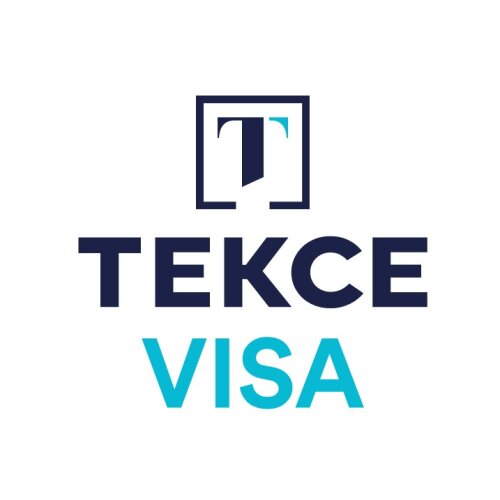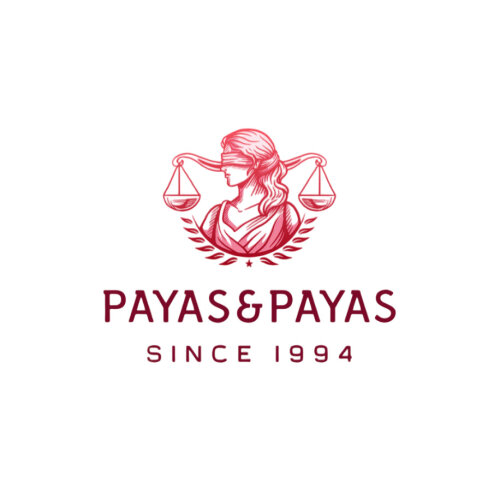Best Conveyancing Lawyers in Turkey
Share your needs with us, get contacted by law firms.
Free. Takes 2 min.
Free Guide to Hiring a Real Estate Lawyer
Or refine your search by selecting a city:
List of the best lawyers in Turkey
About Conveyancing Law in Turkey
Conveyancing in Turkey refers to the legal process of transferring property ownership from one party to another. This includes all stages from drafting and reviewing sale agreements to registering the change of ownership with the relevant land registry office. Due to Turkey's unique property laws and procedures, as well as frequent use of the Turkish language in official documents, professionals often recommend legal assistance to navigate conveyancing processes. Whether purchasing, selling, or gifting real estate in Turkey, understanding the principles of Turkish conveyancing law can help ensure a smooth and secure transaction.
Why You May Need a Lawyer
There are several situations where legal guidance in conveyancing is essential:
- You are a foreigner unfamiliar with Turkish property law or language barriers.
- There are disputes over property ownership, inheritance, or rights of use.
- You are dealing with complex transactions such as property development, mortgaging, or off-plan purchases.
- The property has legal encumbrances such as mortgages, liens, or easements.
- You need to draft or review sales contracts to ensure your rights are protected.
- There are uncertainties about due diligence, such as verifying title deeds or citizenship requirements.
A lawyer can help clarify your obligations and protect your interests during negotiations, contract signing, and registration of the property.
Local Laws Overview
Turkish property law is governed by the Turkish Civil Code and regulated by various statutes, most notably the Land Registry Law and related regulations. Key aspects relevant to conveyancing in Turkey include:
- All property transfers must be executed in person at the local Land Registry Office. Powers of attorney are possible but must be notarized.
- Property sales contracts signed outside the Land Registry are considered preliminary, and the official transfer only occurs when registered.
- For foreign buyers, specific rules apply regarding the type and location of properties they can purchase, and military clearance may sometimes be required.
- Tax liabilities such as title deed transfer tax, value-added tax, and potential capital gains tax should be considered in each transaction.
- Due diligence is crucial to confirm there are no hidden debts, unpaid taxes, or zoning issues attached to the property.
- Legal inheritance rules (forced heirship) may impact the division and future conveyance of properties.
- Documentation is largely conducted in Turkish, so accurate translation and thorough understanding are vital.
Frequently Asked Questions
What is the first step in the property conveyancing process in Turkey?
The first step is conducting a due diligence search to verify property ownership, check for encumbrances, debts, or restrictions, and confirm that the seller has the legal right to transfer the title.
Can foreigners buy property in Turkey?
Yes, foreigners can generally buy property in Turkey, though there are certain restrictions related to location (in some military or security zones) and type of property. Additional formalities may apply, so legal guidance is highly recommended.
How is the property transfer completed?
After signing a sale agreement, the parties must attend the local Land Registry Office. The official title transfer is carried out in the presence of a registrar, and the new title deed is issued after payment of required taxes and fees.
What taxes or fees are involved in conveyancing?
The main tax is the title deed transfer tax, generally set at 4 percent of the declared property value, split equally between buyer and seller unless otherwise agreed. There may also be notary and agency fees, as well as value-added tax in certain cases.
Do I need to be present in Turkey to buy or sell property?
While personal attendance at the Land Registry is required, you can appoint a representative through a notarized power of attorney, allowing them to act on your behalf for the transaction.
Is a preliminary sale contract legally binding in Turkey?
A preliminary sale contract signifies the parties’ intent but does not transfer legal ownership. Only the transaction recorded at the Land Registry has full legal effect.
What is a TAPU?
A TAPU is an official title deed document issued by the Turkish Land Registry that proves legal ownership of the property.
Are there risks of buying property with unpaid debts or liens?
Yes, outstanding debts or liens attached to the property can transfer to the new owner if not cleared before the conveyancing process. Thorough due diligence is essential to prevent such issues.
Can I get a mortgage to finance a property purchase in Turkey?
Yes, both Turkish citizens and qualifying foreigners can apply for local bank mortgages, provided they meet underwriting criteria and property valuation requirements.
How long does conveyancing usually take in Turkey?
Once all documents are in order, most transactions can be completed within a few days to a couple of weeks, depending on due diligence, bank clearances, and the speed of administrative procedures.
Additional Resources
For further support and updated information on conveyancing in Turkey, consider the following organizations:
- General Directorate of Land Registry and Cadastre (Tapu ve Kadastro Genel Müdürlüğü) - the primary governmental body overseeing property registrations.
- Union of Turkish Bar Associations (Türkiye Barolar Birliği) - for locating licensed property lawyers.
- Local chambers of commerce and real estate agents - for guidance and referrals to professionals.
- Turkish Ministry of Environment, Urbanization and Climate Change - provides regulatory information on real estate and zoning laws.
Next Steps
If you need legal help with conveyancing in Turkey:
- Consult a lawyer specializing in Turkish property law before any transaction or signing any documents.
- Request a full due diligence report on the property, verifying title, encumbrances, and regulatory compliance.
- Ensure all contracts and official documents are translated and fully understood before proceeding.
- Attend the Land Registry appointment or arrange for a notarized power of attorney if you cannot be present.
- Stay informed about your tax and legal obligations as a property owner in Turkey.
Taking these steps can help you avoid common pitfalls and ensure your property transfer is secure, legal, and in your best interests.
Lawzana helps you find the best lawyers and law firms in Turkey through a curated and pre-screened list of qualified legal professionals. Our platform offers rankings and detailed profiles of attorneys and law firms, allowing you to compare based on practice areas, including Conveyancing, experience, and client feedback.
Each profile includes a description of the firm's areas of practice, client reviews, team members and partners, year of establishment, spoken languages, office locations, contact information, social media presence, and any published articles or resources. Most firms on our platform speak English and are experienced in both local and international legal matters.
Get a quote from top-rated law firms in Turkey — quickly, securely, and without unnecessary hassle.
Disclaimer:
The information provided on this page is for general informational purposes only and does not constitute legal advice. While we strive to ensure the accuracy and relevance of the content, legal information may change over time, and interpretations of the law can vary. You should always consult with a qualified legal professional for advice specific to your situation.
We disclaim all liability for actions taken or not taken based on the content of this page. If you believe any information is incorrect or outdated, please contact us, and we will review and update it where appropriate.
Browse conveyancing law firms by city in Turkey
Refine your search by selecting a city.

















